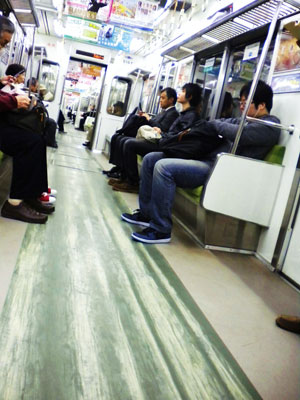All Nonfiction
- Bullying
- Books
- Academic
- Author Interviews
- Celebrity interviews
- College Articles
- College Essays
- Educator of the Year
- Heroes
- Interviews
- Memoir
- Personal Experience
- Sports
- Travel & Culture
All Opinions
- Bullying
- Current Events / Politics
- Discrimination
- Drugs / Alcohol / Smoking
- Entertainment / Celebrities
- Environment
- Love / Relationships
- Movies / Music / TV
- Pop Culture / Trends
- School / College
- Social Issues / Civics
- Spirituality / Religion
- Sports / Hobbies
All Hot Topics
- Bullying
- Community Service
- Environment
- Health
- Letters to the Editor
- Pride & Prejudice
- What Matters
- Back
Summer Guide
- Program Links
- Program Reviews
- Back
College Guide
- College Links
- College Reviews
- College Essays
- College Articles
- Back
Feedback on "Dear Legged People"
The poem,"Dear Legged People," by Alejandra Marquez truly sets people straight. It corrects the stereotypical accusations made by society about those in wheelchairs. This piece describes the epitome of false generalizations. Alejandra starts off each part of the poem with "Dear legged people" and as each stanza is read it becomes more clear that although we might not want to admit it, we all make mistakes when judging people based on appearances or in this case medical status.
This poem was definitely an eye-grabber from the moment I saw the title. It put me in the situation of someone with a disability and I could feel the frustration that stereotypes caused. I would not be able to empathize with someone in such a condition as being in a wheelchair, however, sympathy came to me from only reading the piece. I especially like the lines,"Dear legged guy who told me I inspire you,/ I don't quite understand what you mean./ You're inspired by the fact that I'm having coffee?" This displays only a small portion of the voice Alejandra does an excellent job of conveying throughout the poem. This piece also has a clear sense of humor as well as maintains a serious tone. "Dear Legged People" made me view people with disabilities not in a different way, but as ordinary individuals who live in the same world we do.

Similar Articles
JOIN THE DISCUSSION
This article has 0 comments.
